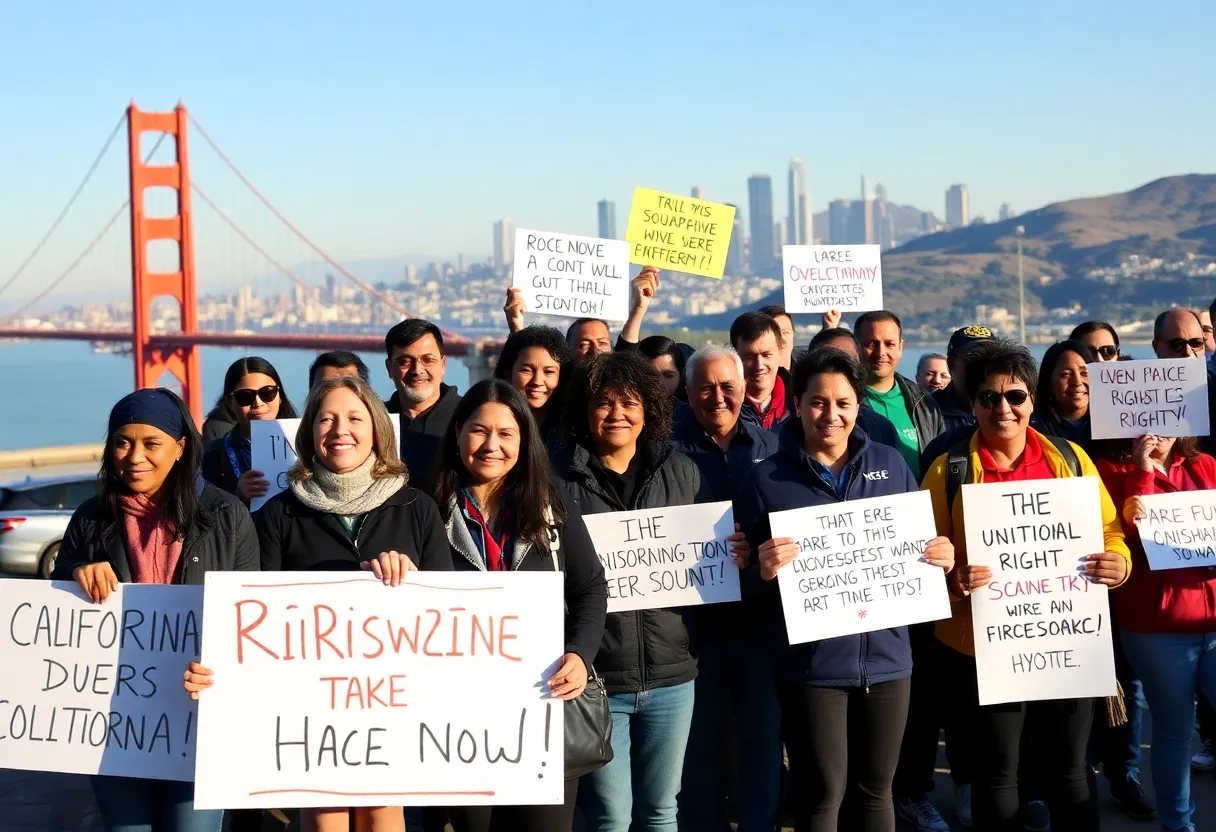California, August 30, 2025
News Summary
California is set to empower rideshare drivers as Uber and Lyft support a significant legislative framework allowing unionization. Backed by Governor Gavin Newsom, this move introduces Assembly Bill 1340, enabling drivers to collectively bargain for better pay and benefits without federal oversight, marking a historic shift in labor rights for approximately 800,000 drivers. However, while the new agreement offers a path towards unionization, it does not alter their independent contractor status as defined by Proposition 22, and skepticism remains about its overall effectiveness in improving working conditions.
California is set to witness a significant shift in the rights of rideshare drivers as Uber Technologies Inc. and Lyft Inc. have agreed to support a landmark legislative framework allowing drivers to unionize and collectively bargain. This arrangement, which was backed by California Governor Gavin Newsom and other legislative leaders, aims to provide better support and resources for approximately 800,000 drivers in the state.
The agreement encompasses the passage of Assembly Bill 1340 (AB 1340), a driver bargaining bill that has been sponsored by the Service Employees International Union (SEIU). This bill is hailed as the largest expansion of private sector collective bargaining rights in California’s history. It permits gig drivers to negotiate aspects such as pay, job protections, and benefits, all without federal supervision.
In conjunction with AB 1340, the agreement also includes Senate Bill 371 (SB 371), which allows rideshare companies to reduce their uninsured motorist insurance requirements. Currently, the law mandates coverage of $1 million per rideshare driver, which would be lowered to $60,000, with total accident coverage capped at $300,000. Since insurance costs currently account for up to 45% of fares in Los Angeles, this modification is designed to alleviate some financial burdens on the companies, potentially leading to lower prices for passengers.
Even though AB 1340 establishes a right for drivers to organize, it does not alter their legal status as independent contractors—a designation confirmed by Proposition 22 in 2020. Under the new legislation, drivers can choose to unionize through a petition that requires signatures from at least 10% of active drivers. This legal change aims to foster a more organized approach to labor rights amid ongoing disputes over classification, compensation, and job security within the gig economy.
Despite the optimism surrounding the new legislative framework, skepticism remains among experts regarding its potential effectiveness in improving working conditions for drivers. Some key protections, including the right to strike and demands for employer-provided data on wages, were omitted from the final version of the legislation. As a result, while the agreement marks a notable trend toward unionization in the gig economy, questions linger about the extent of its impact.
Furthermore, it’s important to note that this historic deal applies specifically to rideshare drivers and does not extend to other gig workers, such as food delivery personnel using apps like DoorDash. Legislative leaders anticipate that the collaboration between the rideshare companies and state officials will facilitate the swift passage of these proposed bills through the California legislature by mid-September.
This legislative change may set a precedent, creating a potential model for similar agreements in other states that are grappling with worker rights within the gig economy. As the situation evolves, many drivers are hopeful that this development will provide them with a stronger voice in addressing their grievances.
FAQ Section
What is the new legislative agreement for Uber and Lyft drivers in California?
The agreement allows California rideshare drivers to unionize and collectively bargain under a structure established by Assembly Bill 1340.
What are the main benefits of this agreement?
Drivers will have the ability to negotiate pay, job protections, and benefits without federal agent supervision, marking a significant expansion of collective bargaining rights.
Does this agreement change the legal status of rideshare drivers?
No, the agreement does not change drivers’ status as independent contractors, which was confirmed by Proposition 22 in 2020.
What changes are being made to insurance requirements?
The uninsured motorist insurance requirement will be reduced from $1 million to $60,000 per driver, with total coverage capped at $300,000 per accident.
When is the new legislation expected to pass?
Legislative support is expected to facilitate the passage of these proposed bills through the California legislature by mid-September.
Key Features of the Legislative Agreement
| Feature | Description |
|---|---|
| Unionization Rights | Drivers can organize and collectively bargain under AB 1340. |
| Insurance Requirements | Reduces uninsured motorist coverage from $1 million to $60,000. |
| Job Status | Does not change drivers’ status as independent contractors. |
| Legislation Timeline | Expected passage through California legislature by mid-September. |
| Applicability | Specifically for rideshare drivers, excluding other gig workers. |
Deeper Dive: News & Info About This Topic
- Los Angeles Times
- Wikipedia: Unionization
- Politico
- Google Search: Uber Lyft unionization
- TechCrunch
- Encyclopedia Britannica: Gig economy
- SFist
- Google News: California Uber Lyft drivers unionization
- Insurance Journal
- Google Scholar: Collective bargaining in California

Author: STAFF HERE HOLLYWOOD
The Hollywood Staff Writer represents the experienced team at HEREHollywood.com, your go-to source for actionable local news and information in Hollywood, Los Angeles County, and beyond. Specializing in "news you can use," we cover essential topics like product reviews for personal and business needs, local business directories, politics, real estate trends, neighborhood insights, and state news affecting the area—with deep expertise drawn from years of dedicated reporting and strong community input, including local press releases and business updates. We deliver top reporting on high-value events such as the Hollywood Bowl summer concerts, the Hollywood Christmas Parade, film premieres at TCL Chinese Theatre, and festivals at the Magic Castle. Our coverage extends to key organizations like the Hollywood Chamber of Commerce and Visit Hollywood, plus leading businesses in entertainment, dining, and tourism that define the local economy. As part of the broader HERE network, including HERELosAngeles.com, HEREBeverlyHills.com, HEREAnaheim.com, and HEREHuntingtonBeach.com, we provide comprehensive, credible insights into Southern California's dynamic landscape.





